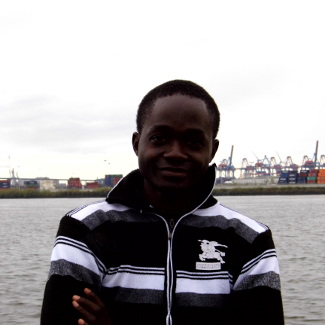- Last Updated on Thursday, 31 August 2023 15:11
![]()
About This Case File: Both the AQR and CCQR are posted and the sentences are entered into the database. Analytic entities are entered for the Anaphora Portal, but analytic entity information for the Clausal Complementation portal are incomplete. Work on an anaphora sketch is in (slow) progress.
Anaphora Questionnaire Responses [pdf]
Clausal Complementation Questionnaire Responses [pdf]
Bibliography of work on Makaa [pdf]
Makaa Case File Consultant
IBIRAHIM NJOYA, a DAAD (Deutscher Akademischer Austauch-Dienst) scholarship holder, is presently enrolled in the Ph.D. program at the Institute of Asian-Africa studies (AAI) at the University of Hamburg. His area of specialization is Phonology. His Ph.D. research aims at building up a typology of high vowel reduplication in African languages. Since October 2011, he has been a junior assistant lecturer at AAI assisting Prof Roland Kießling in teaching text-based analysis of an African language: Makaa. From January 2009 to December 2010 he offered his services as a linguistic volunteer for the Pana language (ISO 639-3: pnz) language to CABTAL (Cameroon Association for Bible translation and Literacy). From May 2008 to December 2009, he worked as BASAL RELAD4-CLA volunteer (Basic Standardization of all unwritten African Languages and Revitalization of African endangered languages-4) on the Laka language (ISO 639-3: lap) at the NACALCO Centre for Applied Linguistics, in Cameroon. Finally, from October 2005 to May 2011, he was part-time lecturer at the Department of African languages and Linguistics at the University of Yaounde 1, Cameroon where he taught Phonology, Introduction to Phonetics, Introduction to African Linguistics and Morphology, Bilingual training (French and English), Introduction to General Linguistics, Structural and Generative Syntax. He has authored didactic materials on the Pana and the Laka languages and a couple of scientific papers to appear. His current fields of interest includes: (1) Phonology; (2) Morpho-phonology; (3) documentation of the Makaa language; (4) Typological Linguistics; (5) Revitalization and documentation of endangered languages; (6) Syntax and Semantics.
 Makaa
Makaa
